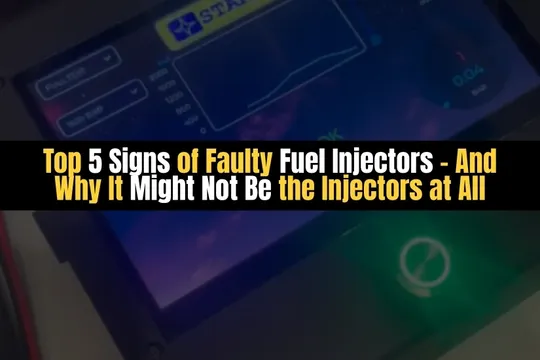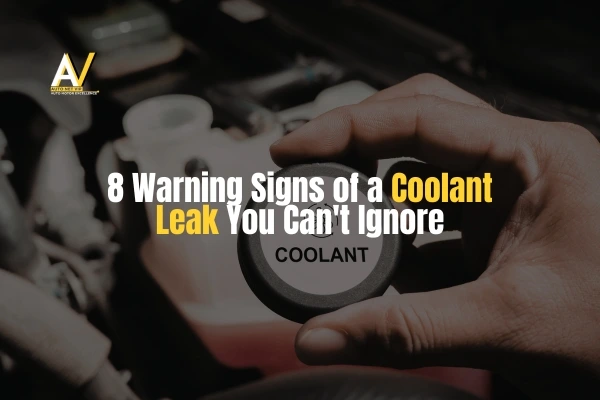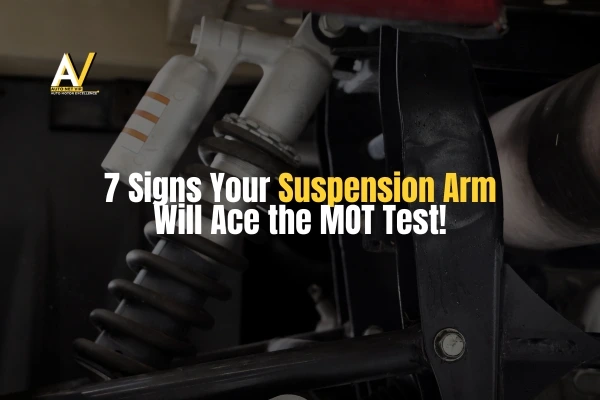Auto Expert Advice
Unlock Your Car’s Potential: Driving & Vehicle Guides from AutoNet VIP Garage
Welcome to AutoNet VIP Garage’s Driving & Vehicle Guides – your definitive source for expert automotive knowledge tailored for UK car owners. From essential vehicle maintenance schedules to practical driving safety tips and insights into automotive technology, our guides are crafted by our skilled team at your trusted Harlow garage. We empower you to make informed decisions about your car’s health, understand common car
Common Signs of Fuel Injector Problems (And How to Spot Them)
Fuel injectors are vital to your engine’s performance. They spray fuel into the combustion chamber at the right moment and in the right amount — which is essential for your car to run smoothly. But when fuel injectors go bad, they can trigger a range of frustrating symptoms.
Here’s the challenge: many signs of faulty injectors mimic other issues in the fuel, ignition, or air intake systems. That’s why accurate diagnostics are essential before replacing any parts.
Below, we break down the 5 most common signs of fuel injector problems, explain what causes them, and help you understand the other potential culprits to rule out.
At AutoNet VIP, we don’t just fix cars — we build trust. Every vehicle we service reflects our 40+ years of dedication to quality, reliability, and honest care.
Lucian
Owner
1. Engine Misfires
What is it?
An engine misfire occurs when the combustion process is disrupted in one or more cylinders. You may feel the car jerking or vibrating during acceleration, and the check engine light may flash.
Fuel injector-related causes:
- Clogged injector: Prevents fuel from reaching the cylinder, leading to incomplete combustion.
- Leaky injector: Sends excess fuel, making the mixture too rich.
- Stuck open/closed injector: Either floods the cylinder or starves it of fuel.
Other possible causes:
- Worn spark plugs: Can’t ignite the air-fuel mixture effectively.
- Faulty ignition coil: Fails to deliver enough voltage to the spark plugs.
- Vacuum leaks: Introduce unmetered air, throwing off the combustion balance.
- Fuel pump issues: Insufficient pressure can starve injectors of fuel.
- Dirty air filter or MAF sensor: Affects how the engine calculates air intake and fuel needs.
Why it matters:
Frequent misfires can lead to rough running, increased emissions, damage to the catalytic converter, and long-term engine wear.
2. Rough Idle
What is it?
When your engine idles inconsistently, shakes, or vibrates while sitting still, it’s called a rough idle.
Fuel injector-related causes:
- Uneven fuel spray: Poor atomization disrupts combustion in one or more cylinders.
- Incorrect fuel pressure: Can lead to surging or dipping RPMs at idle.
Other possible causes:
- Vacuum leaks: Cause air to enter the engine without being measured, creating a lean fuel mixture.
- Dirty throttle body: Carbon build-up interferes with airflow at idle.
- Bad MAF sensor: Sends incorrect air mass readings, leading to fuel delivery errors.
- EGR valve stuck open: Allows exhaust gases into the intake when it shouldn’t, disrupting combustion.
Why it matters:
A rough idle is often a warning sign of underlying mechanical or electronic issues and can affect fuel economy and performance.
3. Sluggish Acceleration or Loss of Power
What is it?
If your car doesn’t respond well when you hit the accelerator, struggles to gain speed, or feels underpowered, something is reducing performance.
Fuel injector-related causes:
- Partially blocked injectors: Starve the engine of fuel under load.
- Improper spray pattern: Leads to poor combustion efficiency.
Other possible causes:
- Failing fuel pump: Can’t supply enough fuel, especially at high demand.
- Blocked fuel filter: Restricts flow to injectors.
- Turbocharger issues: A damaged turbo can’t supply the extra air needed for performance.
- Sensor issues (e.g., TPS, MAP): Incorrect sensor readings cause the engine to limit power.
- Dirty air filter: Restricts airflow and reduces power output.
Why it matters:
Power loss affects drivability, safety, and your ability to overtake or merge onto motorways.
4. Black Smoke from Exhaust
What is it?
Black smoke coming from your exhaust is a sign that too much fuel is being burned, also called “running rich.”
Fuel injector-related causes:
- Leaking or stuck injectors: Over-deliver fuel into the combustion chamber.
- Poor atomization: Leads to inefficient burning and unburnt fuel exiting as smoke.
Other possible causes:
- Faulty fuel pressure regulator: Delivers excessive pressure, causing over-fuelling.
- Bad O2 sensor: Sends wrong feedback to the ECU, making it add more fuel than necessary.
- Leaking EGR valve: Allows exhaust gases back into the intake at the wrong time.
- ECU tuning or remapping errors: Especially common in performance vehicles with modified fuel maps.
Why it matters:
Excess fuel not only affects MPG but can damage your catalytic converter, DPF (diesel particulate filter), and other emission control components — which are expensive to replace.
5. Poor Fuel Economy (Low MPG)
What is it?
You’re spending more at the pump, even though your driving habits haven’t changed.
Fuel injector-related causes:
- Leaky injectors: Constantly drip fuel into the engine, even when it’s not needed.
- Clogged injectors: Force the ECU to overcompensate by delivering more fuel to maintain power.
- Uneven spray patterns: Cause incomplete combustion, which wastes fuel.
Other possible causes:
- Low tyre pressure: Increases rolling resistance and fuel consumption.
- Sensor malfunctions (O2, MAF, coolant temp): Lead to poor fuel-air ratio calculations.
- Poor driving habits: Aggressive acceleration and braking hurt MPG.
- Dirty filters: Block airflow or fuel flow, making the engine work harder.
Why it matters:
Bad fuel economy is not just a money problem — it’s a sign your engine isn’t running efficiently and could be suffering long-term damage.
What Vehicles Use Fuel Injectors?
Short answer: Almost all modern vehicles.
Petrol/Gasoline Vehicles:
- Cars made after the mid-1980s use either Multi-Port Fuel Injection (MPFI) or Gasoline Direct Injection (GDI).
- Common brands: Toyota, Honda, Ford, VW, Audi, BMW, Hyundai, Kia, Nissan, Peugeot, and more.
Diesel Vehicles:
- All modern diesels use Common Rail Direct Injection (CRDi).
- Seen in: Mercedes-Benz, BMW, Ford, Peugeot, Renault, VW, Land Rover, Mazda, and many others.
Hybrid & Turbocharged Cars:
- These systems rely on precise fuel injection to manage combustion and emissions.
- Most hybrids and turbocharged engines (like Ford EcoBoost, VW TSI, Toyota hybrids) use fuel injection.
If your car was built after 1990, it almost certainly uses fuel injectors — and they will need servicing at some point.
Accurate Fuel Injector Testing in Harlow, Essex
At AutoNet VIP, we don’t guess — we test. Many garages go straight to part replacement, costing you hundreds unnecessarily. We use specialist tools to get to the root cause.
Our Diagnostic Process Includes:
- Electronic fuel injector flow & balance testing
- Fuel pressure and regulator testing
- Live misfire data and cylinder imbalance analysis
- ECU fault code scan and interpretation
- Sensor checks (O2, MAF, MAP, TPS, etc.)
We’ve helped customers avoid replacing injectors — when the real issue was the fuel pump, pressure regulator, or even a simple wiring fault.
Conclusion
We proudly offer injector diagnostics and vehicle diagnostics. Book Professional Injector Testing Today. Stop wasting money on parts you may not need. Let our qualified technicians get to the bottom of your issue with precision diagnostics.
Book now at:
Call/Text: 01279 427852 | 07300 305705




